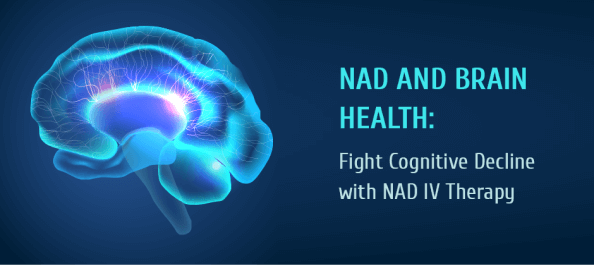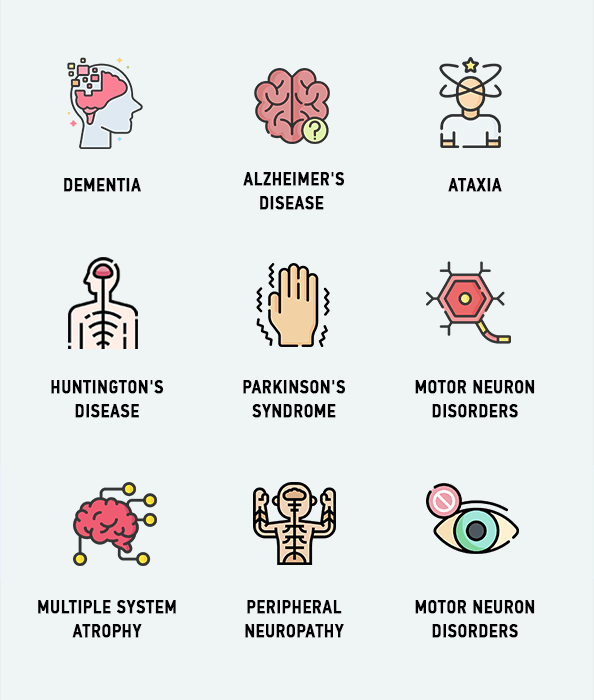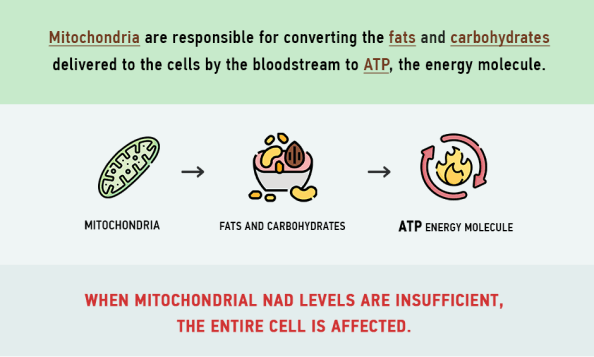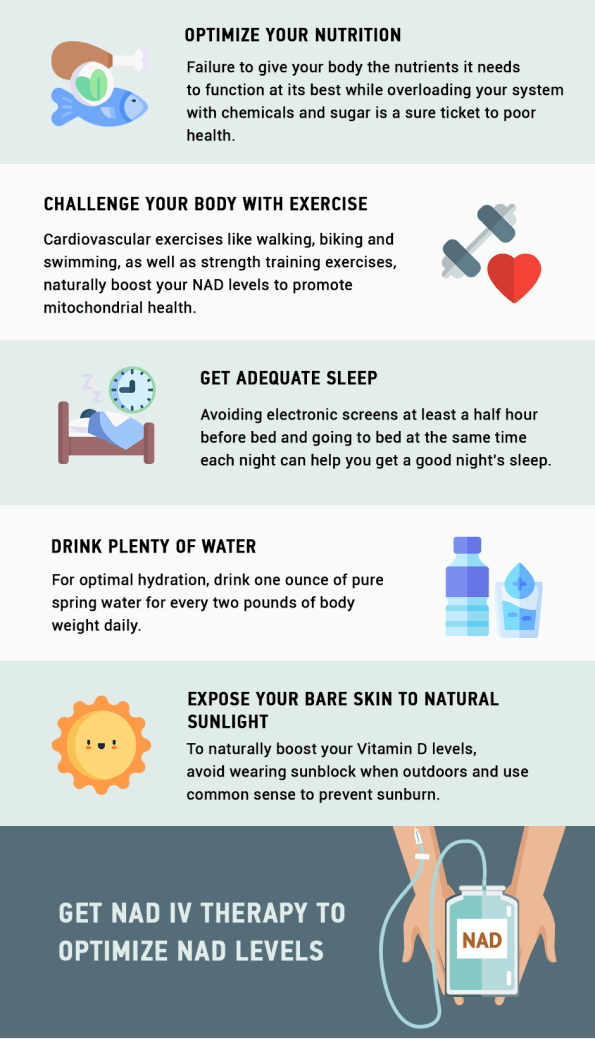
Age-related changes in health are something we all dread, but the most frightening is the prospect of losing our cognitive function. Yet neurodegenerative disorders like dementia, Alzheimer’s disease and Parkinson’s disease are on the rise, and appearing in ever-younger populations.
While falling victim to conditions that destroy the brain may seem like the luck of the draw, new research is pointing to lifestyle factors as the underpinning cause of neurodegenerative decline. Learn what you can do today to protect your brain health as you age.
What We Know About Cognitive Decline
The term “neurodegenerative” refers to the progressive decline of the central nervous system due to a variety of factors. Some neurodegenerative disorders primarily affect the brain, while others disrupt the neural pathways between the brain and body.
In the vast majority of cases, neurodegenerative disorders are irreversible, although many measures can be taken to slow or even halt the degenerative process.

The most common types of neurodegenerative disorders include:
- Dementia
- Alzheimer’s disease
- Ataxia
- Huntington’s disease
- Parkinson’s syndrome
- Motor neuron disorders
- Multiple system atrophy
- Peripheral neuropathy
- Diseases of the retina
Early detection and rapid intervention are key to minimizing damage to the brain and central nervous system, but early symptoms are often subtle, and many patients experience months or even years of decline before seeking help. By then, the disease is often in its advanced stages and becomes a ticking time bomb that culminates in death.
The Role of NAD in Neurodegenerative Diseases
Nicotinamide adenine dinucleotide (NAD) is a vital coenzyme that plays a critical role in energy production, DNA damage repair, gene expression, and stress response. Multiple studies have shown that NAD metabolism is a key factor in neurodegenerative diseases, including Alzheimer’s disease (AD), Parkinson’s disease (PD), and retinal degenerative diseases like glaucoma and macular degeneration.
In particular, NAD helps to regulate chemical reactions in the mitochondria, microscopic organelles found in every living cell. Mitochondria are responsible for converting the fats and carbohydrates delivered to the cells by the bloodstream to ATP, the energy molecule. When mitochondrial NAD levels are insufficient, the entire cell is affected.

Dysfunction of the mitochondria is known to play a key role in the development and progression of neurodegenerative diseases such as AD and PD, and deficient NAD levels are characteristic in AD and PD patients. NAD supplementation has been shown to reactivate healthy mitochondrial function in depleted individuals.
As humans exceed their reproductive prime, NAD levels naturally begin to drop, a common biological characteristic of all species. At the end of the day, the job of all biological systems is to reproduce, after which time they begin to die. However, there are multiple things you can do to optimize your NAD levels and slow the aging process.
Lifestyle Factors that Help Fight Degenerative Disorders
There are multiple ways you can naturally increase your NAD levels and ward off cognitive decline, regardless of your age. But making lifestyle changes can be challenging. Humans are creatures of habit, and change can be disruptive to your daily life. Yet choosing health over habit is essential if you want to avoid degenerative disorders and slow the aging process.
Here are some fundamental changes you can make today to reduce your risk of degenerative diseases in the future:
1. Optimize your nutrition. Poor diet has been cited as a major factor in degenerative disorders. Failure to give your body the nutrients it needs to function at its best while overloading your system with chemicals and sugar is a sure ticket to poor health. NAD is a derivative of niacin, also called Vitamin B3.
The foods richest in niacin include:
- Chicken
- Liver
- Turkey
- Salmon
- Sardines
- Grass Fed Beef
Modern diets that avoid animal products are unlikely to deliver all the nutrients you need for optimal health. In particular, Vitamins B12 and B3 are likely to be deficient in a vegan or vegetarian diet, and you may need to supplement to maintain good health.
2. Challenge your body with exercise. Vigorous physical activity promotes healthy mitochondria, and regular exercise increases both the size and number of mitochondria in your cells. Cardiovascular exercises like walking, biking and swimming, as well as strength training exercises, naturally boost your NAD levels to promote mitochondrial health.
3. Get adequate sleep. A new study published in April, 2021 found that middle aged people who get less than six hours of sleep per night were 30 percent more likely to be diagnosed with some form of dementia later in life, compared to people sleeping seven hours or longer. Avoiding electronic screens at least a half hour before bed and going to bed at the same time each night can help you get a good night’s sleep.

4. Drink plenty of water. The vast majority of people in modern society are chronically dehydrated, and dehydration has been linked to a number of metabolic disorders, including obesity and diabetes. Another new study published in 2021 links diabetes and dehydration to dementia and Alzheimer’s disease. That should come as no surprise, since your brain is almost 75% water. For optimal hydration, drink one ounce of pure spring water for every two pounds of body weight daily.
5. Expose your bare skin to natural sunlight. Your body needs sunlight to make Vitamin D, a critical nutrient for multiple metabolic functions. Vitamin D deficiency has been cited as a key risk factor for coronavirus, and one study found vitamin D deficiency to be associated with a substantially increased risk of dementia and Alzheimer disease. To naturally boost your Vitamin D levels, avoid wearing sunblock when outdoors and use common sense to prevent sunburn.
6. Get NAD IV therapy to optimize NAD levels. Modern life is not always conducive to sustaining healthy lifestyle habits. Even if you succeed in making positive lifestyle changes, they are often disrupted by life events beyond your control. A good example is the recent pandemic that made it difficult to go outside, exercise or even eat a healthy diet. An effective way to optimize your NAD levels is to supplement via IV infusion. When delivered intravenously, NAD bypasses your gastrointestinal tract where supplements often lose much of their potency. NAD IV therapy delivers the nutrient directly to your cells via your bloodstream, with its potency fully intact. Because NAD is a nutrient and not a drug, there is no risk of side effects and you don’t need a prescription.
If you want to enjoy good health, both physical and mental, begin by taking responsibility for your own health. Many people neglect their health until they begin to experience symptoms, then they go to the doctor looking for a cure. But doctors cannot cure diseases, they can only treat symptoms, usually with pharmaceuticals that have adverse side effects. Only you can fix your health by making better lifestyle choices, day after day.
Boost Your Brain Health with NAD IV Therapy in NYC
Poor health and cognitive decline are not inevitable consequences of aging. They come about by exposure to environmental toxins, poor diet, lack of exercise, insufficient sleep and other factors that are largely under your control.
The clinicians at InVita Wellness are dedicated to helping modern people live life to its fullest via all-natural treatments and therapies. In addition to NAD IV therapy, we offer a wide range of IV Vitamin cocktails, nutrient injection therapies, and whole body and local cryotherapy.
Contact InVita Wellness today, and treat your body to the nutrients it craves so you can live life as the very best version of yourself.
Resources
Hikosaka, Keisuke, et al. “Implications of NAD metabolism in pathophysiology and therapeutics for neurodegenerative diseases.” Nutritional neuroscience 24.5 (2021): 371-383
Littlejohns, Thomas J., et al. “Vitamin D and the risk of dementia and Alzheimer disease.” Neurology 83.10 (2014): 920-928.
Sabia, Séverine, et al. “Association of sleep duration in middle and old age with incidence of dementia.” Nature Communications 12.1 (2021): 1-10.
Thornton, Simon N., and Athanase Benetos. “Dementia, Alzheimer’s and diabetes could be linked through hypovolaemia.” (2021).